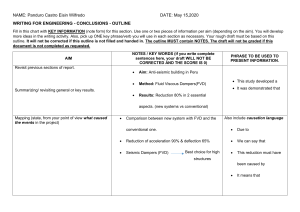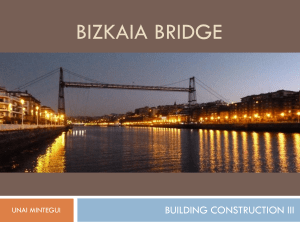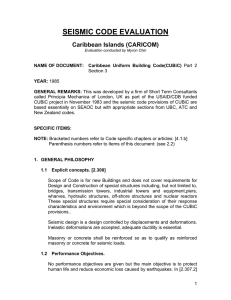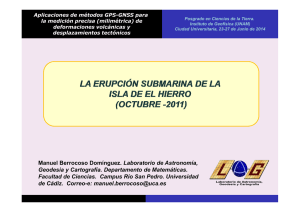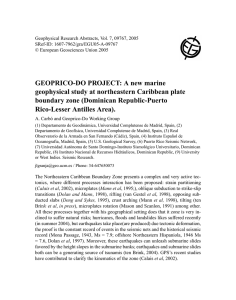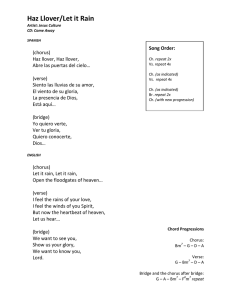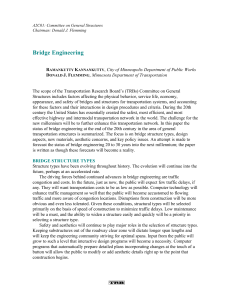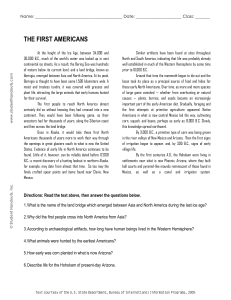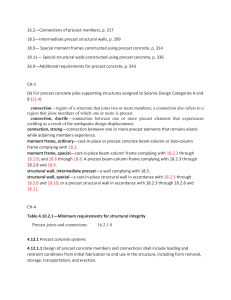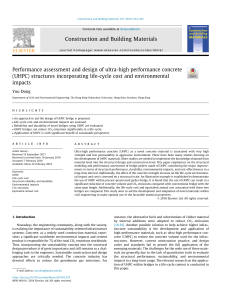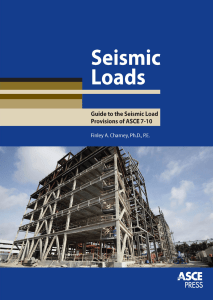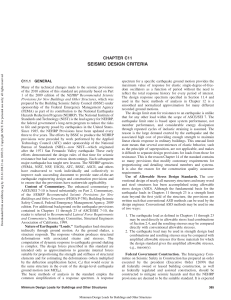Accelerated Bridge Construction in Pacific Northwest Seismic Regions Khaleghi
Anuncio
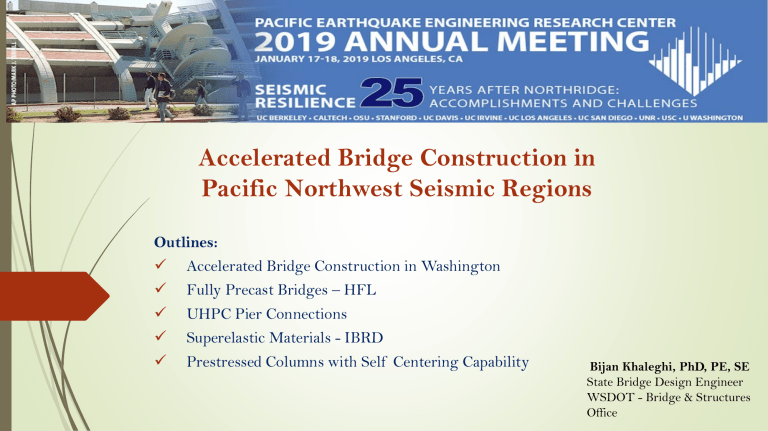
Accelerated Bridge Construction in Pacific Northwest Seismic Regions Outlines: Accelerated Bridge Construction in Washington Fully Precast Bridges – HFL UHPC Pier Connections Superelastic Materials - IBRD Prestressed Columns with Self Centering Capability Bijan Khaleghi, PhD, PE, SE State Bridge Design Engineer WSDOT - Bridge & Structures Office Accelerated Bridge Construction & Seismic Challenges Examples of WSDOT ABC Projects Hood Canal Approach Bridge Construction ABC - Bridge Lateral Slide: Night Closure 7 pm Saturday September 14th 2 pm Sunday September 15th Bridge Move Summary: 1. 2. 3. Temporary Span out (25 min.) Permanent Span in (45 min.) Deck Lowering (30 min.) http://wwwi.wsdot.wa.gov/eesc/bridge/ABC/ UHPC Connection for DBT Bridges - ABC Existing bridges constructed via this method have shown poor performance from the welded bars. Proposed Solution: Eliminate the welds and use UHPC to create the longitudinal joint. SCOPE: Develop a new, inexpensive UHPC mix using local materials, test its structural performance, and specify a joint width. Bridge Substructure & Seismic Design Requirements Typical WSDOT Precast prestressed girder bridge with dropped bent cap 23% 1% 35% Concrete Prestress Conc Steel Timber 41% Connections need to be: • Constructible • Seismic Resilient – Emulative • Long term Performance & Longevity • 2014 Seismic Hazard Maps and Site Coefficients • FEE and SEE Two level Seismic Design • Grade 80 A706 Rebar Large-Bar Connection - UW Member socket connection at base Large, bars at precast cap connection Two-stage cap Upper stage CIP Girders integral with combined lower and upper stages of cap Precast Bridge System in High Seismic Regions - HFL Column-to-Cap Connection Column-to-Spread Footing and Shaft Connection Tests Precast Bridge System in High Seismic Regions - HFL • PCI Journals • Webinars • Showcase Precast Bent Cap Placement o o o o Two Erection Cranes Segment Weight :(120 &165 kips) 16 Duct Connection per Segment CIP Closure Examples of WSDOT ABC Projects Two-level performance criteria are required for design of Essential and Critical bridges. FEE: 30% probability of exceedance in 75 years – 210 yrs Return Period SEE: 7% probability of exceedance in 75 years – 975 yrs Return Period Bridges are considered as Critical, Essential, or Normal for their operational classification as described below. o Critical Bridges - are expected to provide immediate access to emergency and similar life-safety facilities after an earthquake. o Essential Bridges - serve as vital links for rebuilding damaged areas and provide access to the public shortly after an earthquake. All bridges within the seismic lifeline are considered Essential bridges. o Normal Bridges - All bridges away from Lifeline not designated as either Critical or Essential are designated as Normal. • Normal Bridges: One Level • Essential Bridges: Two Level • Critical Bridges: Two Level NCHRP: Performance Based Seismic Design o Seismic isolation bearings are designed per LRFD, SGS, Isolation GS, and BDM. o Expansion joints accommodate seismic movements required for isolation bearings to function properly. o Adequate clearance at abutments for seismic displacement. o Combinations of isolation bearings and conventional bridge column fixity are not allowed. Trans & Longit Seismic Total Design 6 to 24 inches Displacement range (TDD) EQ Plastic Hinge Parameter Isolated Structure Effective Period (T) 2 to 3 seconds Seismic Isolation EQ Innovative Super Elastic Materials - SMA Superelastic Nickel-Titanium Shape Memory Alloy (SMA) Bars Reduce residual displacements • Challenges with including SMA • Cost • Schedule – 6 month delivery, not including process to head bar for mechanical splice • Mechanical splice required in hinge region WSDOT Bridge Column Test - UNR Three - 0.4 Scale Columns 2 Incorporating SMA and ECC 1 Conventional RC 62 in clear height 18 in x 18 in cross-section Cyclic loading SR 99 South Tunnel off Ramp Access • Bridge Completed in 2018 • Open to traffic 2/2019 Seismic Resiliency – Self Centering Precast Columns Seismic Resiliency – Self Centering Precast Columns Proposed Research: FIU-UHPC Connection Tests Proposed FIU tests with Self Centering UHPC + Shape Memory Alloy in Plastic Hinging zone and ECC 2019-21 Biennium Bridge Research Projects: • Performance of Steel Jacket Retrofitted Reinforced Concrete Bridge Columns in Cascadia Subduction Zone Earthquakes • Effects of Cascadia Subduction Zone M9 Earthquakes on Bridges in Washington State Bijan Khaleghi, Bijan.Khaleghi@wsdot.wa.gov
